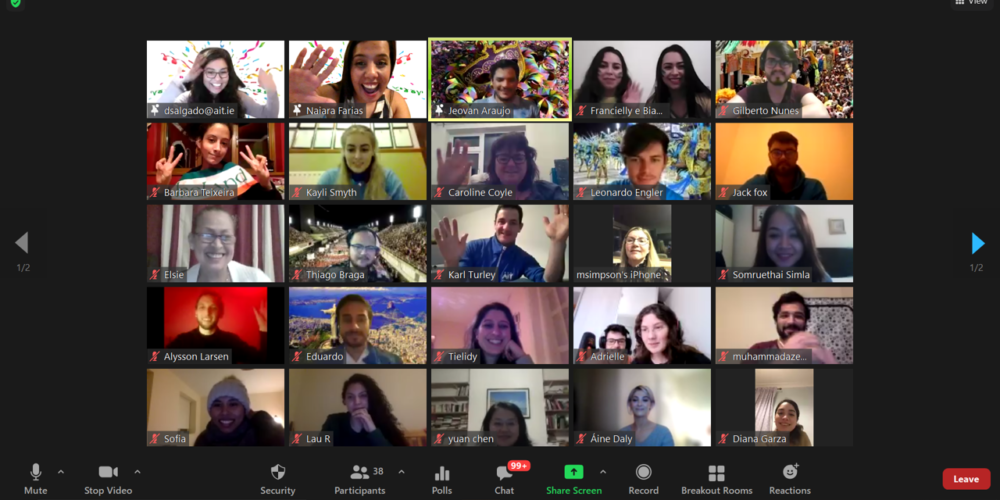COVID 19 proved no barrier to Brazilian students and friends at Athlone Institute of Technology (AIT) who managed to celebrate Carnaval – their country’s traditional festival which is marked at the start of Lent.
Carnaval went virtual like so much else in life at the moment and was an amazing success. Karl Turley is the Deputy Director of International Relations at AIT. “The show started with a display of how Brazilians celebrate Carnaval in different cities in Brazil, a quiz and then a display of music and dance. Participants were encouraged to submit answers during the virtual quiz showing their knowledge of Brazil and prizes were awarded. There are over 20 Brazilian students at AIT, with many studying PhD programmes at our Bioscience Research Institute, Materials Research Institute and Software Research Institute.”
The Brazilian students prepared a video guide to Samba dancing in the weeks leading up to Carnaval and the judging panel from AIT: Elsie Burgoyne, Caroline Coyle, Lecturers at the Department of Social Science, AIT, Áine Daly, President of AIT Students Union, Fr. Shay Casey, Chaplain at AIT and Evelyn Bonifacio, Samba Teacher had a tough job separating the contestants.
More examples of Brazilian culture can be viewed on YouTube.




